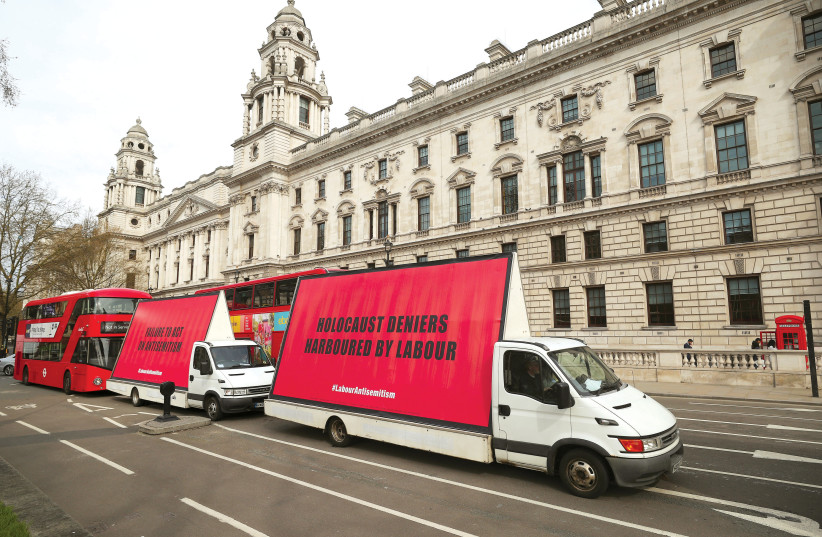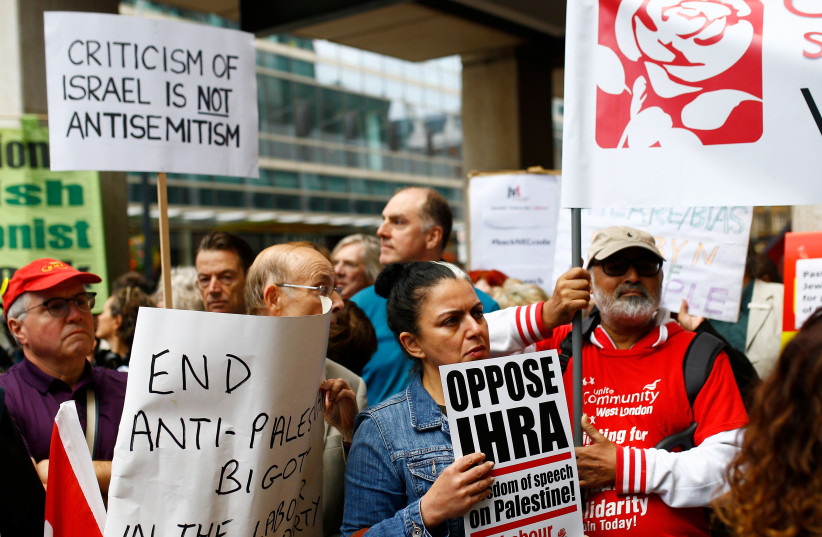Former UK Labour Party leader MP Jeremy Corbyn lamented "powerful forces" which branded him as antisemitic for his anti-Zionist stance in an interview given to Beirut-based Al Mayadeen earlier this week.
"I have absolutely no doubt whatsoever that my clearly stated support for the right of Palestinian people to be able to live in peace free from occupation...played a factor in all this," Corbyn told the pro-Hezbollah Lebanese news outlet.
Corbyn was barred from serving as a member of parliament as part of the Labour Party in January following more and more allegations of antisemitism made against him, including by former UK chief rabbi, the late Jonathan Sacks, and former British prime minister David Cameron.
He was initially suspended during a party-wide review of antisemitic practices, including 23 complaints of inappropriate involvement in antisemitism by the Equality and Human Rights Commission.

Now, Corbyn has blamed "powerful forces that oppose him" for being barred from the party. "It was very clear to me since I was a candidate for the leadership of the Labour Party, that I was dealing with powerful forces that oppose me.
Corbyn claims he received 'threats' from 'powerful forces'
Corbyn claimed that, shortly after he was elected to lead Labour, he received "clear threats from some military figures." He added that, following condemnations from then-US president Donald Trump and former Israeli prime minister Benjamin Netanyahu, he understood "how strong the forces opposed to me were."
The reason he was "targeted," Corbyn states, is because he was "proposing a different approach in dealing with foreign relations and international policies."
Despite that, Corbyn "will always be the one opposing" anti-black, antisemitic and islamophobic racism, he said. "I spent my life opposing racism in any form whatsoever," the MP said.
Balfour Declaration 'misinterpreted'
In his interview, the former leader of the opposition also attacked the Balfour Declaration, saying a future UK government must be prepared to "recognise the historical wrong done to the Palestinians" at some point.
The declaration, Corbyn said, was misinterpreted.
"The declaration itself said it also recognized the rights of the inhabitants of what is now Palestine, which had never, never happened," Corbyn claimed. "Instead, their rights were ignored and still largely are."

Palestinians 'central' to Corbyn's thinking
Corbyn also told Al Mayadeen of his future plans, which involve Israel and the Palestinian cause heavily, he said.
"I worked...and will in the future with many great human rights campaigners, both in Palestine and Israel," Corbyn said. "People who want to be able to live in peace in the Middle East. You will not achieve peace by occupation, by imprisonment, be encirclement, by siege, you will achieve peace by recognition of people's rights."
"The rights of the Palestinian people to me are central to our thinking," the controversial British MP added.
